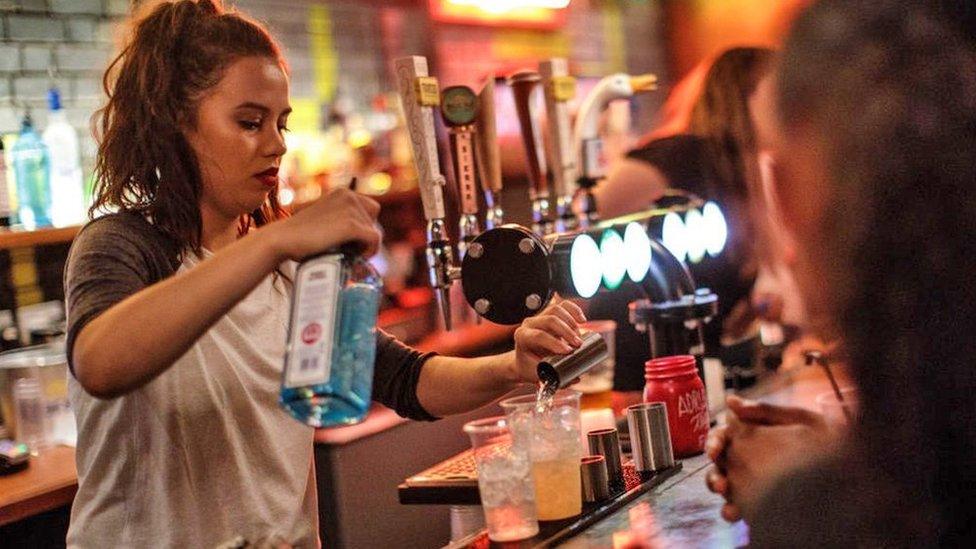Where pubs are bucking the trend of decline
- Published
- comments
What's keeping Highland pubs going?
Pubs in the Highlands appeared to be bucking a UK-wide trend of pub and bar closures.
Since 2008, almost a quarter of pubs in the UK have shut according to Office for National Statistics (ONS) analysis, external.
But the study shows that in the Highlands there are 14% more pubs than there were 10 years ago.
Paul Waterson, of the Scottish Licensed Trade Association, said a major factor behind the growth was that the pubs had done well catering for tourists.
Tourism is the Highland region's most important industry and supports 25,000 jobs.
Provisional figures for last year suggest almost 6.5 million visitors came to the area.
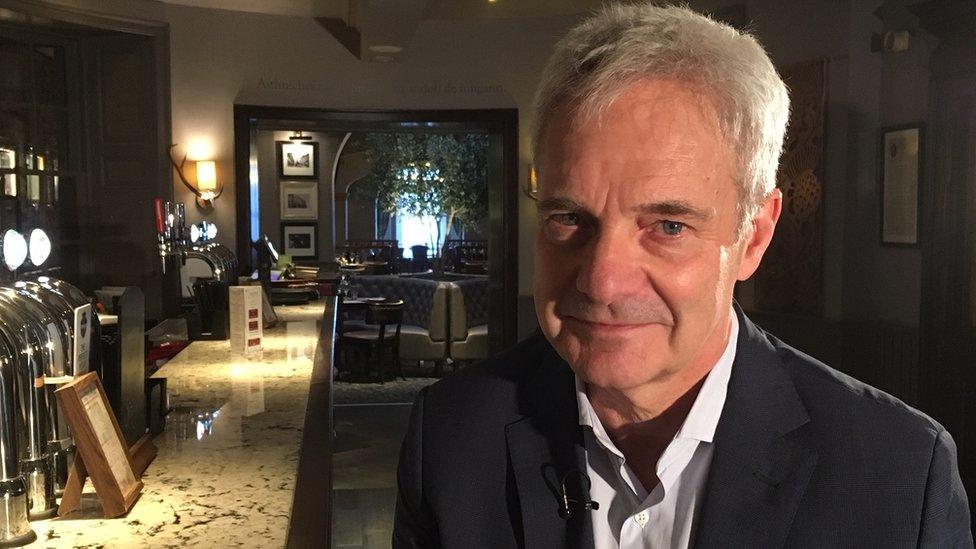
Paul Waterson says Scottish pubs have been under pressure for years
According to the ONS, more than 11,000 pubs have closed in the UK in the last decade - a fall of 23%.
In Scotland, East Renfewshire and East Ayrshire saw the largest decline in pub numbers. The two areas have 40% fewer pubs than 10 years ago.
Other areas of Scotland have also seen declines, including Moray, Angus, Fife and the Scottish Borders where there the numbers have fallen by 20% or more.
But the Highlands and East Dunbartonshire, where there has been an increase of 20% or more in pubs, have experienced growth.
They join places such as Ceredigion in Wales and English seaside resorts Scarborough, Blackpool and Brighton in bucking the trend.
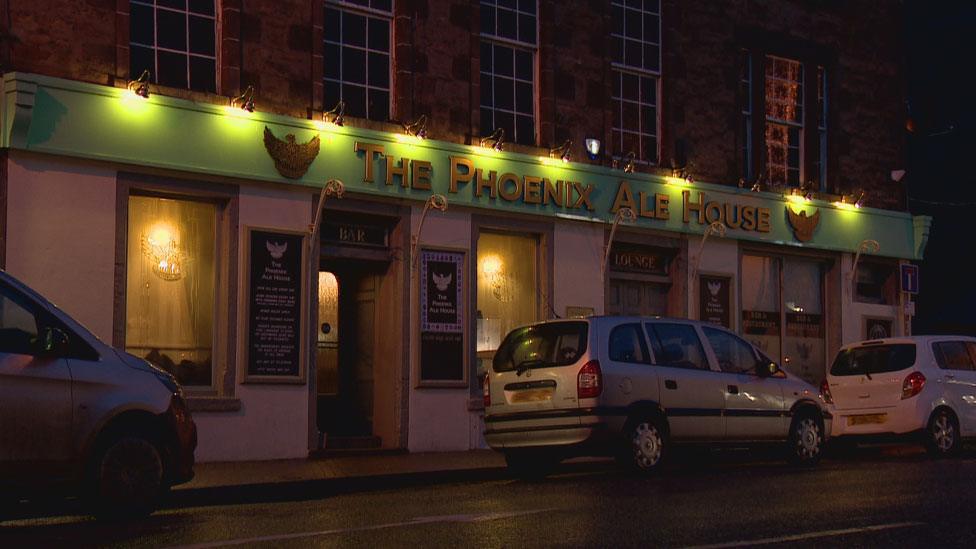
The Highland region appears to have bucked the UK trend, according to the ONS
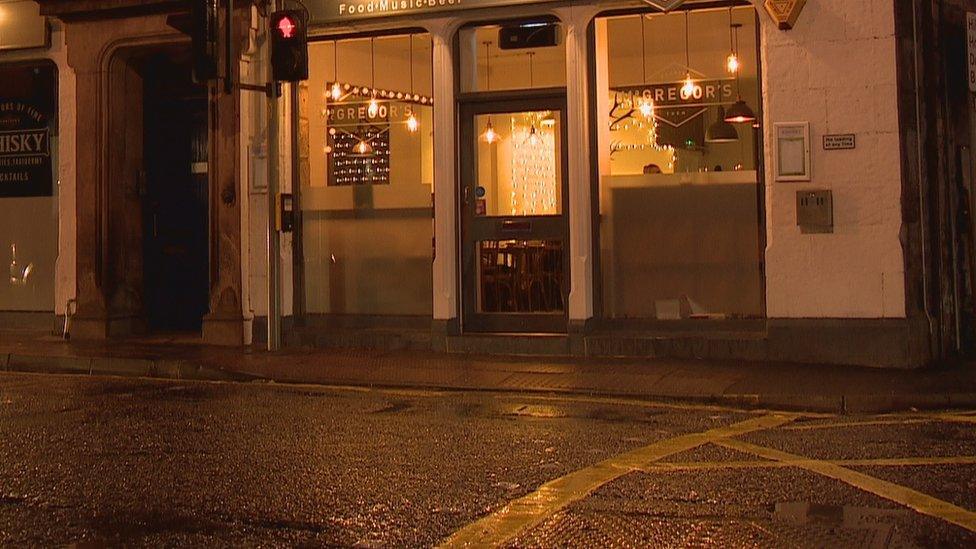
Tourism is held up as a factor in supporting Highlands businesses
Mr Waterson told BBC Radio's Good Morning Scotland programme that Scottish pubs have had a hard time trading since the introduction of a law prohibiting smoking in public places.
He said: "We've been under pressure since around 2006 when the smoking ban came in. That was certainly a game changer.
"Also, a move towards home drinking through cheap supermarket alcohol hasn't helped.
"Thousands of pubs have closed over the last number of years, but the Highlands and Islands have bucked that trend.
"I think it is down to the pubs being well run and catering for the customer, but also a huge increase in the number of tourists coming to that area who are then well catered for in the pubs and bars in the Highlands and Islands."
Mr Waterson said pubs elsewhere in Scotland were being encouraged to tap into the tourism where possible.
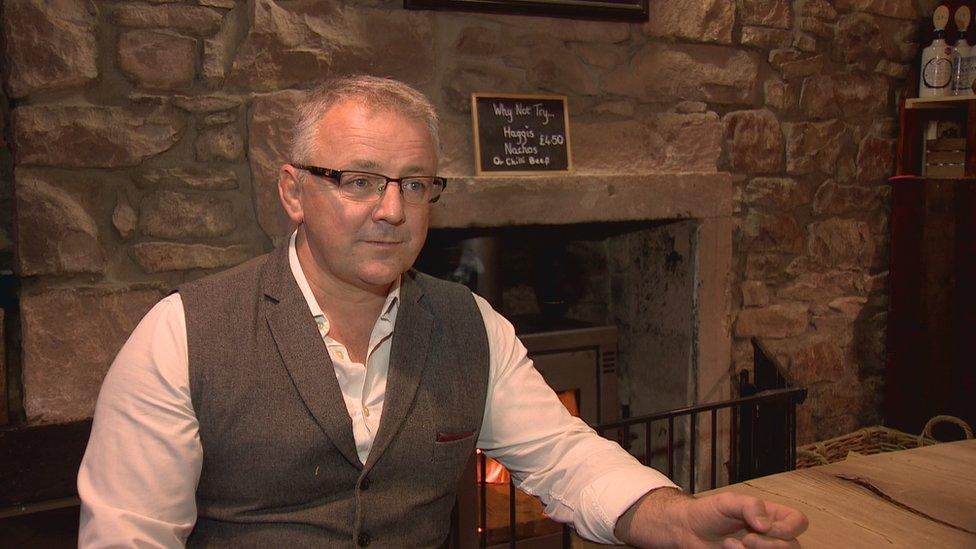
Bruce McGregor says he was told he was an idiot for trying to open a new bar
Musician Bruce McGregor opened a new bar in Inverness on St Andrew's Day last year.
He said he was told he was an "idiot" for trying to open such a business on the "wrong side of town" and against a national decline in pubs.
But among his reasons for pressing ahead with his venture was to create somewhere he and his wife, and other people of the same age, could go to and enjoy Highland food, drink and live music.
Mr McGregor said: "Another reason was that there were so many tourists coming into Inverness.
"We were blown away by the numbers of tourists we saw last year - Americans, Germans, Spaniards and French."
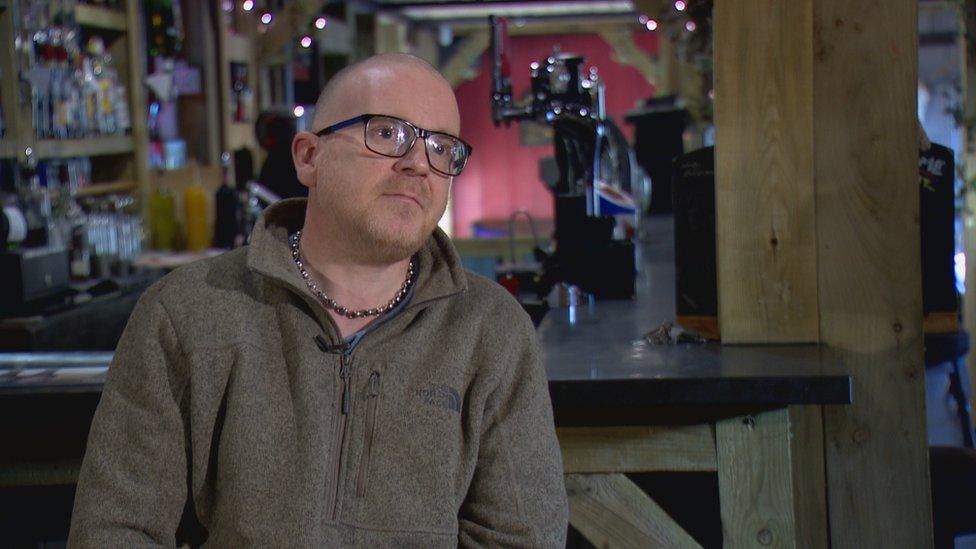
George Callum said business can be tough for rural Highlands pubs outside of the tourist season
However, George Callum, who has run a pub in Munlochy on the Black Isle for the last five years, said business could be tough for rural Highland pubs outside the tourism season.
He said: "Christmas is good but in the months between October to probably March most businesses are closed, or are struggling to keep afloat because of the lack of numbers."
Mr Callum said his pub was one of the "lucky ones" in being able to get business from local customers and, in the tourist season, from visitors.
His pub puts on steak nights, karaoke and live music to attract customers.
But he said he could understand why traditional pub-going had declined.
"We are in an age of uncertainty," he said, adding: "And if you are young family it is economically better to sit and drink at home because you are going to get more for your pound."
- Published26 November 2018
